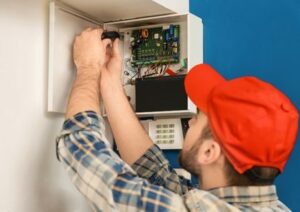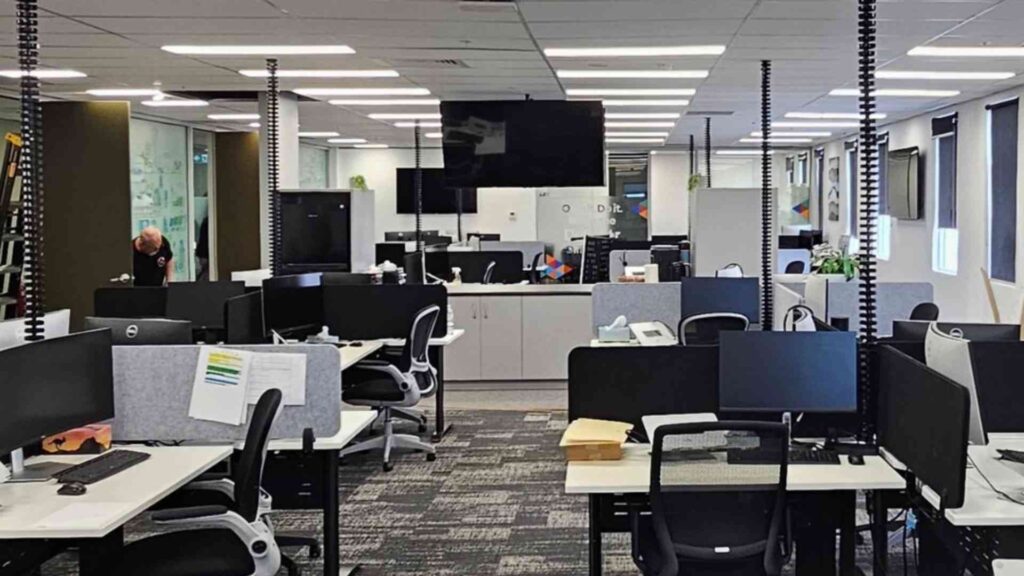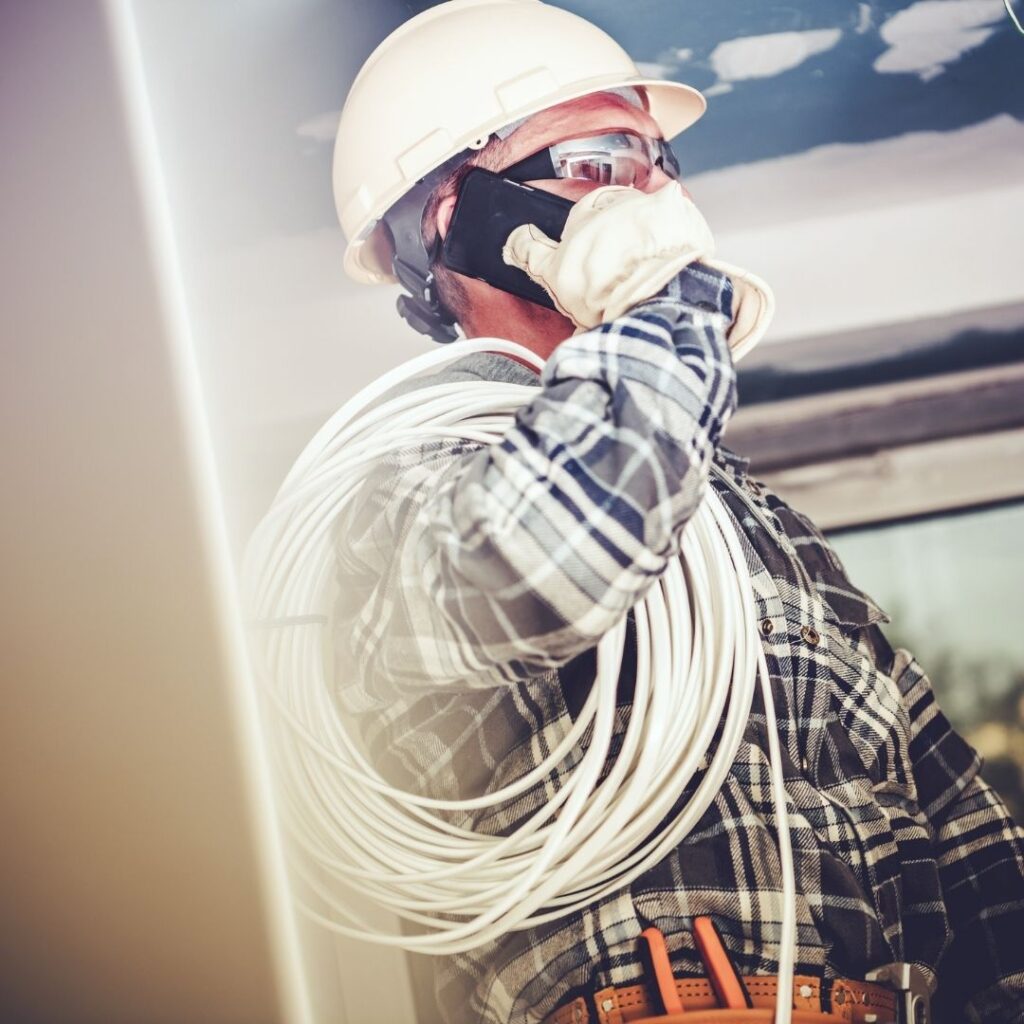In today’s automated industrial landscape, the controls electrician serves as a vital specialist who bridges electrical systems with sophisticated control technologies. A automation technician possesses unique expertise in installing, maintaining, and troubleshooting the complex systems that power manufacturing processes, building automation, and industrial operations. This comprehensive guide explores the essential functions of a controls electrician, their specialized skill set, and how they differ from other electrical professionals like those providing Commercial Electrician Services.

Understanding the Scope of a Controls Electrician’s Work
An automation technician specializes in the electrical aspects of control systems that automate industrial processes and machinery. Unlike standard electricians who focus on power distribution, a controls electrician works extensively with programmable logic controllers (PLCs), sensors, motor controls, and human-machine interfaces (HMIs). Their work ensures that automated systems operate reliably and efficiently.
The daily responsibilities of a automation technician typically include installing and calibrating control system components such as variable frequency drives (VFDs) and servo motors. They interpret complex electrical schematics and ladder logic diagrams to troubleshoot automation systems, combining electrical expertise with knowledge of control theory. Many controls electrician professionals work closely with Industrial Electrician Services teams when projects involve both power distribution and control systems integration.
Key Skills and Qualifications for Controls Electricians
Becoming a proficient automation technician requires a specialized combination of electrical knowledge and automation expertise. These professionals must thoroughly understand electrical theory while also mastering the principles of industrial control systems. Many controls electrician specialists begin their careers as general electricians before acquiring additional training in automation technologies.
Critical skills for a controls electrician include advanced troubleshooting abilities to diagnose issues in complex control circuits. They must be proficient in reading and interpreting both electrical drawings and control system schematics. Programming knowledge, particularly of ladder logic used in PLCs, represents another essential skill set for modern automation technician professionals.
Certification requirements often include standard electrical licensing plus additional qualifications in control systems. Many controls electrician specialists pursue manufacturer-specific training for the various PLCs, drives, and automation components they work with regularly. This specialized knowledge distinguishes them from general Industrial Electrician Duties professionals who may lack focused control systems expertise.
Control Systems Installation and Commissioning
One of the primary responsibilities of a controls electrician involves the proper installation and commissioning of new control systems. This process begins with carefully reviewing system specifications and electrical drawings to ensure all components will work together as intended. The automation technician then installs control panels, runs conduit, and pulls wires according to design requirements.
During commissioning, the controls electrician performs critical tasks such as verifying proper sensor calibration and checking safety interlocks. They work closely with control engineers to test system functionality and make necessary adjustments. This phase often reveals installation issues or design flaws that the automation technician helps identify and resolve.
For projects involving integrated data systems, a controls electrician may collaborate with Data Cabler professionals to ensure proper installation of communication networks that connect control system components. This collaboration is particularly important in modern Industrial Internet of Things (IIoT) applications.
Troubleshooting and Maintenance Responsibilities
When control systems malfunction, the controls electrician serves as the first responder to diagnose and repair issues. Their systematic troubleshooting approach typically begins with verifying power supplies and checking for obvious physical damage before progressing to more complex diagnostics using specialized tools.
Preventative maintenance forms another critical aspect of a automation technician’s responsibilities. Regular inspections and testing help identify potential issues before they cause unplanned downtime. Maintenance tasks might include cleaning electrical contacts, checking wire terminations, and verifying backup battery systems in control panels.
The controls electrician also plays a key role in documenting maintenance activities and system modifications. Accurate records help streamline future troubleshooting and ensure compliance with safety regulations. Companies like Lightspeed Electricals employ teams of automation technician professionals who understand the importance of thorough documentation in industrial settings.
Safety Considerations for Controls Electricians
Working with industrial control systems presents unique safety challenges that require specialized knowledge. A competent controls electrician must understand lockout/tagout procedures specific to control circuits, which often differ from standard electrical safety protocols. They recognize the hazards associated with stored energy in capacitors and backup power systems within control panels.
Arc flash protection represents another critical safety consideration for automation technician professionals. Control panels often contain both low-voltage logic circuits and high-power components, requiring careful attention to personal protective equipment (PPE) requirements. The controls electrician must also understand safety standards specific to control systems, such as those governing emergency stop circuits and machine guarding interfaces.

Integration with Other Building Systems
Modern controls electrician work increasingly involves integrating industrial control systems with other building infrastructure. This might include connecting automation systems to Structured Data Cabling networks that handle data communications throughout a facility. The automation technician ensures proper separation and shielding between control wiring and data cables to prevent electromagnetic interference.
In commercial buildings, controls electrician professionals often collaborate with Data Electrician specialists to integrate building automation systems with IT infrastructure. This convergence of operational technology (OT) and information technology (IT) requires careful coordination to maintain system security and reliability.
Emerging Technologies in Control Systems
The field of control systems continues evolving, requiring controls electrician professionals to stay current with technological advancements. Industrial IoT applications are transforming traditional control systems, with increased connectivity and data collection capabilities. The automation technician must understand how to properly implement these smart technologies while maintaining system security and reliability.
Wireless control systems represent another growing area that challenges traditional controls electrician practices. While wired systems remain predominant in industrial settings, wireless solutions are gaining acceptance for certain applications. The automation technician must evaluate when wireless technologies are appropriate and ensure proper implementation when used.
Energy efficiency technologies also impact controls electrician work, with advanced motor controls and smart sensors playing increasingly important roles in reducing industrial power consumption. These systems often require specialized knowledge to install and maintain properly.
Career Pathways for Controls Electricians
The specialized nature of automation technician work offers several potential career advancement opportunities. Experienced professionals may progress to supervisory roles overseeing teams of electricians and technicians. Some transition into control system design or engineering positions, leveraging their practical experience to inform system development.
Other controls electrician professionals specialize further in particular industries or control system types. For example, some focus on process control systems in chemical plants, while others specialize in discrete manufacturing automation. This specialization often commands premium compensation due to the niche expertise required.
Continuous learning remains essential for controls electrician professionals throughout their careers. As control technologies evolve, ongoing training ensures they can work effectively with the latest systems and maintain their competitive edge in the job market.
Selecting a Qualified Controls Electrician
When hiring a controls electrician, businesses should verify both electrical licensing and specific control systems training. Experience with similar systems in your industry proves particularly valuable, as control solutions often vary significantly between different applications.
Quality controls electrician services should include thorough documentation of work performed and system modifications. This documentation becomes invaluable for future maintenance and troubleshooting. Providers like Lightspeed Electricals emphasize comprehensive record-keeping as part of their professional controls electrician services.
Understanding of relevant industry standards represents another key qualification for controls electrician professionals. These standards govern everything from control panel construction to safety system implementation, ensuring reliable and compliant installations.

The Future of Controls Electrician Services
As automation continues expanding across industries, demand for skilled controls electrician professionals will likely grow. The increasing complexity of control systems, combined with the integration of smart technologies, creates ongoing need for specialists who can bridge electrical and control disciplines.
Sustainability initiatives are also shaping the future of automation technician work, with energy-efficient control strategies becoming standard practice. Professionals who understand these technologies will be well-positioned to meet evolving industry requirements.
The convergence of IT and OT systems presents both challenges and opportunities for controls electrician services. Those who develop cross-disciplinary expertise will find themselves in high demand as industrial systems become more connected and data-driven.
Conclusion: The Vital Contribution of Controls Electricians
In our increasingly automated world, the specialized skills of a automation technician have become essential for maintaining reliable and efficient industrial operations. From manufacturing plants to building automation systems, these professionals ensure that control systems function as intended, minimizing downtime and optimizing performance.
The unique combination of electrical expertise and control systems knowledge possessed by controls electrician specialists fills a critical gap in modern industry. As technology continues advancing, their role will only grow in importance, adapting to incorporate new innovations while maintaining the reliability that industrial operations require.
Businesses that recognize the value of professional controls electrician services position themselves for success in an increasingly automated future. Whether implementing new systems or maintaining existing infrastructure, these specialists provide the technical expertise needed to keep control systems operating at peak performance.


